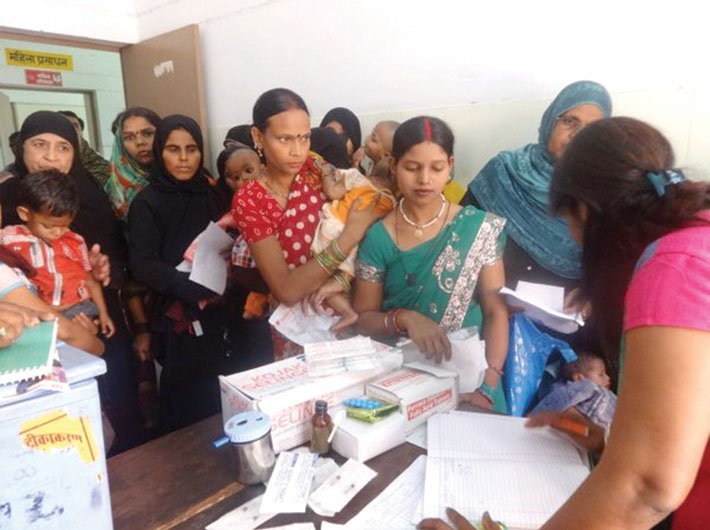Study shows that barely 18 percent of children are vaccinated with the recommended three doses of DPT vaccine
Two-thirds of children in India do not receive their vaccinations on time, prolonging their susceptibility to diseases and contributing to untimely deaths, say University of Michigan researchers.
New research by U-M's School of Public Health found that only 18 percent of children are vaccinated with the recommended three doses of DPT vaccine, while about a third receive the measles vaccination by 10 months under the government-supported immunisation program.
Their study is believed to be the first that looks at vaccination timeliness data for children up to 5 years of age, both with and without immunisation cards.
"This is a systemic problem," said the study's lead author, Nijika Shrivastwa, who recently finished her doctorate in epidemiology at U-M and is now at the South Carolina Department of Health and Environmental Control. "Immunising a child six months after the recommended time period can have dramatic implications for a child's vulnerability to diseases."
Shrivastwa also says a lack of good recordkeeping is part of the problem. When a child is born in India, the parents are given an immunisation card to keep track of the vaccines. But, if the card is lost or misplaced, the record for that child is lost.
Sometimes, it also means a "missed opportunity", she says. A child may be in the hospital for one vaccine, but will not get another follow-up vaccination that was also due because there is no record.
Although India is a leading producer and exporter of vaccines, the country has the greatest number of deaths among children under 5—the majority are from vaccine-preventable diseases.
"Every year, 26 million children are born in India—the greatest number by far of any country in the world," said Dr. Matthew Boulton, senior associate dean for global public health at the U-M School of Public Health and professor of epidemiology, health management and policy, and preventive medicine.
"Adding vast numbers of new children who need vaccination, while the older ones remain under or unvaccinated because of immunization delays, is like walking too slowly on a moving treadmill—you continuously fall further back."
The researchers found that only 12 percent of children are vaccinated with the measles vaccine by the required age of 9 months, although 75 percent are vaccinated by age 5. This delay in vaccination can contribute to frequent outbreaks of measles in India.
"Approximately, 95 percent vaccination is required in a population to successfully stop measles outbreaks," said Boulton, a senior author of the study. "India's childhood vaccination rate is simply too low to successfully control transmission of disease and prevent measles-related childhood illnesses and deaths."
The study looked at the vaccination rate of nearly 270,000 children in the District Level Household and Facility survey data from 2008, a nationally representative sample. The researchers utilised a new statistical analysis methodology to examine data from children without immunisation cards, using mothers' recall of vaccination status.
DLHS was started in 1997 to assess government health care facilities and people's perceptions about the quality of services. A new DLHS sample was collected in 2013, but the results have not been made public yet.
Shrivastwa said the government has the infrastructure to deliver vaccines but motivations for delivering all vaccination doses decreases over time.
"Interventions like awareness building and follow-up with parents will be key to timely vaccinations in India," she said.
India hopes to add rotavirus to its Universal Immunization Program, a free government-approved vaccination program that was looked at in this study.
"For rotavirus to be effective, it must be delivered on time. Otherwise, the child will not receive the disease-preventing benefit of the vaccine," Boulton said.
The researchers agree that if India is able to administer vaccinations on time, it will have a major impact on the global status of childhood vaccinations and public health.
The study, "Vaccination Timeliness in Children under India's Universal immunization Program", is published in the Pediatric Infectious Disease Journal. Other U-M authors include Brenda Gillespie of the Center for Statistical Consultation and Research and James Lepkowski of the Institute of Social Research.
